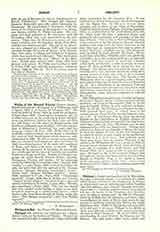

Philip of the Blessed Trinity (ESPRIT JULIEN), Discalced Carmelite, theologian, b. at Malaucene, near Avignon, 1603; d. at Naples, February 28, 1671. He took the habit at Lyons where he made his profession, September 8, 1621. Choosing the missionary life, he studied two years at the seminary in Rome and proceeded in February, 1629, to the Holy Land and Persia, and thence to Goa where he became prior, and teacher of philosophy and theology. After the martyrdom of Dionysius a Nativitate, his pupil, and Redemptus a Cruce, November 29, 1638, Philip collected all available evidence and set out for Rome to introduce the cause of their beatification which, however, only terminated in 1900. He did not return to the mission, but was entrusted with important offices in France, in 1665, was elected general of the order with residence in Rome, and three years later, reelected. While visiting all the provinces of his order, he was caught in a terrific gale off the coast of Calabria, and reached Naples in a dying condition. Besides the classical languages he spoke fluently French, Italian, Spanish, Portuguese, Persian, and Arabic. Of his numerous works the following have lasting value: “Summa philosophiae”, 4 vols., Lyons, 1648, in which he follows not only the spirit but also the method of St. Thomas Aquinas; “Summa theologise thomistic”, 5 vols., Lyons, 1653; “Summa theologise mysticw”, Lyons, 1656, reprinted in 3 vols., Paris, 1884; “Itinerarium orientale”, Lyons, 1649, also in Italian and French; “Decor Carmeli religiosi”, the lives of the saints and saintly members of his Order, Lyons, 1665; “Theologies carmelitana”, Rome, 1665. The two last named and some smaller works dealing to some extent with historical matters of a controversial nature, called forth a reply from Pierre-Joseph de Haitze, under the titles, “Des Moines empruntez”, and “Des Moines travestis”.
B. ZIMMERMAN

